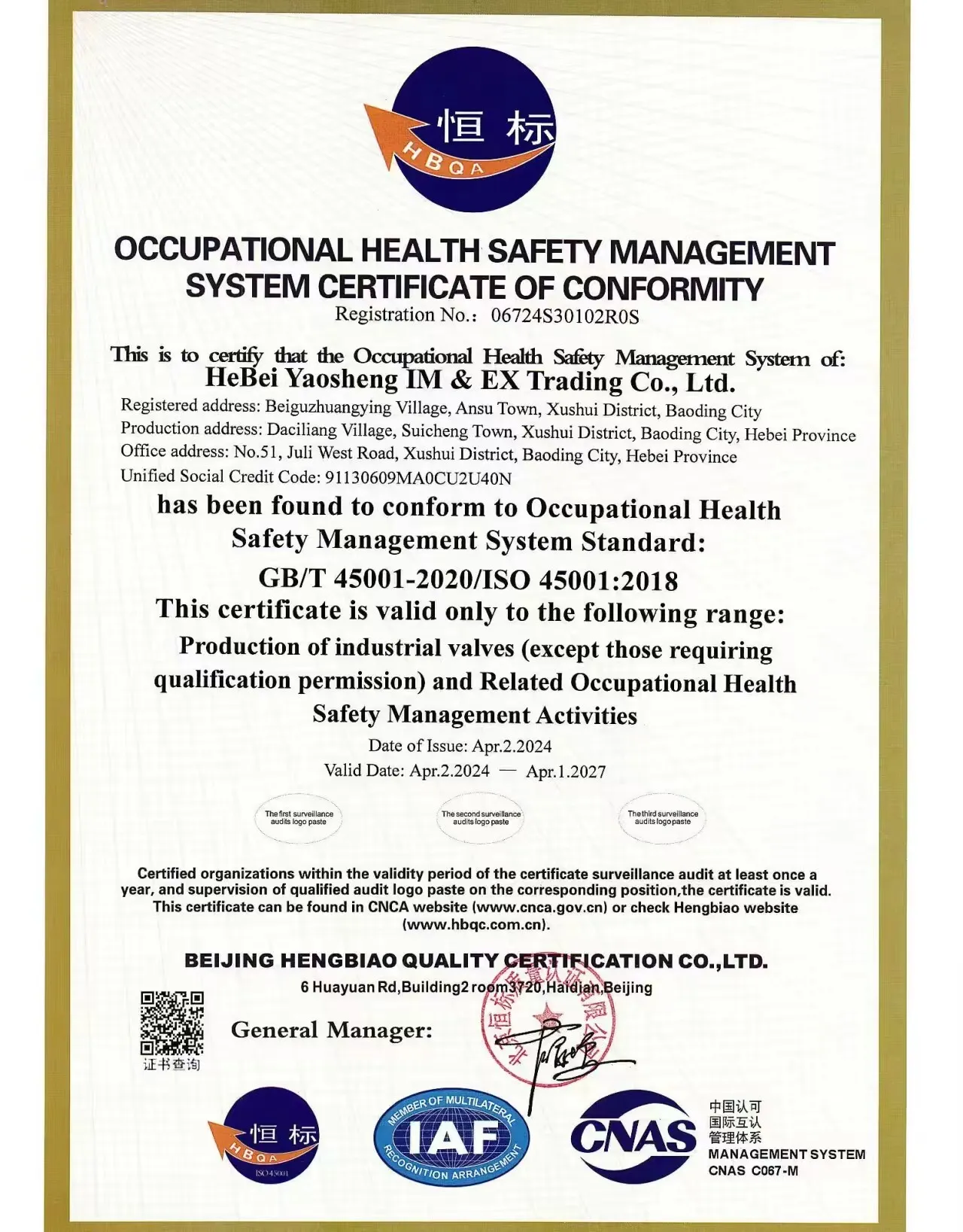Electric Actuated Ball Valve for Efficient Flow Control in Various Applications
Understanding Electric Ball Valves A Comprehensive Overview
Electric ball valves are increasingly becoming a popular choice in various industrial applications due to their reliable performance, energy efficiency, and ease of operation. These valves combine the functionality of traditional ball valves with the advanced control capabilities provided by electric actuators. Let’s delve deeper into the workings, advantages, and applications of electric ball valves.
What is an Electric Ball Valve?
An electric ball valve is a type of quarter-turn valve that utilizes a ball with a hole through its center, allowing flow when the ball is rotated 90 degrees. The electric aspect refers to the actuator, which is powered by an electric motor. This actuator can be controlled remotely or automatically, making it an ideal choice for systems that require frequent and precise flow regulation.
The construction of an electric ball valve typically includes a valve body (made from materials such as stainless steel, brass, or PVC), a ball, and an electric actuator. The actuator is responsible for opening or closing the valve by turning the ball into the desired position, which can be fully open, fully closed, or anywhere in between.
Advantages of Electric Ball Valves
1. Precision Control Electric ball valves offer high precision in controlling fluid flow. The positioning of the ball can be accurately adjusted to regulate the flow rate, making it suitable for applications that require fine-tuning.
2. Remote Operation One of the key benefits of electric ball valves is their ability to be operated remotely. This feature is particularly advantageous in hazardous or hard-to-reach environments, where manual operation would be impractical or unsafe.
3. Energy Efficiency Electric actuators tend to consume less energy compared to pneumatic or hydraulic systems. This is primarily because electric actuators can be designed to operate only when required, minimizing wasted energy.
4. Low Maintenance Electric ball valves have fewer moving parts than traditional valve systems, leading to lower maintenance requirements and longer lifespans. Many models are designed to be weatherproof and corrosion-resistant, enhancing their durability.
electric ball valve

5. Quick Response Time The speed at which electric ball valves can operate is another significant advantage. They can open or close in just a few seconds, making them suitable for applications that require fast response times.
Applications of Electric Ball Valves
Electric ball valves are versatile components used across a range of industries, including
- Water Treatment In water treatment facilities, electric ball valves control the flow of chemicals and water in treatment processes, ensuring efficient operation and safety.
- HVAC Systems In heating, ventilation, and air conditioning (HVAC) systems, these valves regulate the flow of refrigerants and air, helping to maintain desired temperatures while optimizing energy use.
- Oil and Gas The oil and gas industry employs electric ball valves for controlling the flow of fluids and gases. Their reliability and precision are crucial in preventing leaks and ensuring safety.
- Food and Beverage In food processing, hygiene and safety are paramount. Electric ball valves help maintain cleanliness and offer precise control over ingredient flow.
- Pharmaceuticals Similar to the food industry, electric ball valves in pharmaceuticals ensure the safe and precise handling of sensitive substances, meeting strict regulatory standards.
Conclusion
Electric ball valves are a vital component of modern industrial systems, offering a blend of precision control, energy efficiency, and reliability. Their ability to function remotely and their low maintenance needs make them an attractive choice across various sectors. As industries increasingly prioritize automation and energy savings, the popularity of electric ball valves is expected to grow even further.
-
3 types of check valves maintenance tipsNewsAug.23,2025
-
Ball valves types with trunnion mounted designNewsAug.23,2025
-
Butterfly valve company production capabilitiesNewsAug.23,2025
-
Fisher globe valve technical specificationsNewsAug.23,2025
-
Types of gaskets for flanges selection guideNewsAug.23,2025
-
Wedge gate valve suppliers quality standardsNewsAug.23,2025
-
Breakthrough in Domestic Low Temperature Valve Technology in ChinaNewsAug.18,2025




